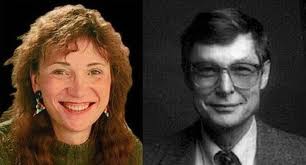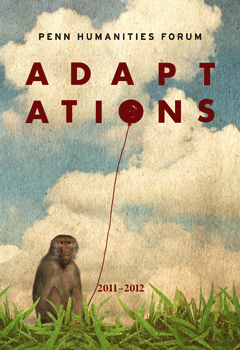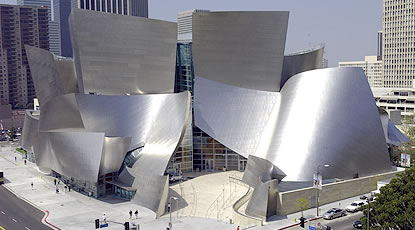Serendip is an independent site partnering with faculty at multiple colleges and universities around the world. Happy exploring!
courses/pppp/f11/notes/5Kaye
coursekeeping
conferences
uploading web events
next week: Act II--De/Meaning Sex and Gender
takes a more biological approach to sex and gender, and examines sexual and anatomical diversity within the animal kingdom. most of you have taken gen/sex courses in humanities/social sciences, but few in natural sciences. some of you have expressed an eagerness to learn more about biological perspectives, others have expressed trepidation.
reassure you that the texts we have selected do not require in-depth knowledge of developmental biology, endocrinology, evolutionary biology, anatomy, pathology, but are written for diverse audiences and in diverse styles. For next week:
Joan Roughgarden. Introduction, Chapter 1: “Sex and Diversity," Chapter 2: “Sex vs Gender,” Chapter 3: “Sex within Bodies,” Chapter 4: “Sex Roles," and Chapter 8: “Same Sex Sexuality." Evolution's Rainbow: Diversity, Gender, and Sexuality in Nature and People. Berkeley: University of California Press, 2004 (available for purchase in BMC Bookshop or free on-line through ebrary).

- born in Paterson, NJ,
- BA in Bio and Phil from Univ. Rochester, PhD in bio from Harvard
- faculty member at Stanford since 1972
- came out as a transsexual woman at age 52. Prior to that time she was identified as a male named Jonathan Roughgarden. In essence, Jonathan Roughgarden left on sabbatical; Joan Roughgarden returned to the same job and title
Olivia Judson. Chapter 12: “Eve’s Testicle.” Dr. Tatiana’s Sex Advice to All Creation. New York: Metropolitan Books, 2002: 187-211, 256-8 (in our password-protected file).
Popular Science Book: Judson has a PhD in evolutionary biology from Oxford, is a journalist, who writes for the Economist, Nature, the Guardian, and blogs for the NYT, she will be speaking at UPenn on Oct 19, "Time Travel Safari. Adventures in the History of Life"

John Alcock. "Changing priorities in changing social environments." Animal Behavior, An Evolutionary Approach, 9th ed. Sunderland, MA: Sinauer Associates, 2009, 168-181 (in our password-protected file).
(Textbook: section of Chapter 5 focuses on how biology intra-acts with social and natural environments, introduces you to testosterone, estrogen, progesterone and the varied effects that these hormones can have on reproductive behavior in different animals and in different settings; first look at the figures and read their captions, then return to the text, and refer to figures; don't get hung up on experimental techniques that you don't understand)
What Females Want and What Males Will Do. Nature (DVD; April 5, 2008--on reserve). Part I: barn swallows, female choice, monogamy, testosterone (start at 15’; end at 22’); gelada primates, “handicap principle” (start at 30.49’; end at 32.59’); testosterone (start at 48.45’; end at 51.55’). Part II: duck phallus/oviduct, “cryptic choice”, defense against forced copulation (start 40.49’; end 44.49’)
5 p.m. Sun, Oct. 30, web event #2 (4 pp.) due: aiming for a specific audience (of middle or high school students? readers of the Bi-College News, the Philadelphia Inquirer, a sex ed blog site??), explain what's important about some dimension of the diversity of gender or sexuality.
music? "What's love (sex/gender) got to do with it (disability)?" by Tina Turner
analogy/addition/hierarchy/diffraction
starting class with silence
revisiting the issues of passing--in light of the multi-modal nature of our sensory perceptions
take two minutes and write down all the phrases with--or meanings of--the word "pass"
- pass (v.)

- late 13c. (trans.) "to go by (something)," also "to cross over," from O.Fr. passer, from V.L. *passare "to step, walk, pass," from L. passus "step, pace" (see pace (1)). Intrans. sense of "to go on, to move forward, make one's way" is attested from c.1300. Figurative sense of "to experience, undergo" (as in pass the time) is first recorded late 14c. The meaning "to be thought to be something one is not" (especially in racial sense) is from 1935, from pass oneself off (as), first found 1809. The general verb sense of "to be accepted as equivalent" is from 1590s. Sense of "to go through an examination successfully" is from early 15c. Meaning "decline to do something" is attested from 1869, originally in cards (euchre). In football, hockey, soccer, etc., the meaning "to transfer the ball or puck to another player" is from c.1865. Colloquial make a pass "offer an amorous advance" first recorded 1928, perhaps from a sporting sense. Pass up "decline, refuse" is attested from 1896. Pass the buck is from 1865, said to be poker slang reference to the buck horn-handled knife that was passed around to signify whose turn it was to deal. Pass the hat "seek contributions" is from 1762. Pass-fail as a grading method is attested from 1959.
- pass (n.)

- "mountain defile," c.1300, from O.Fr. pas "step, track," from L. passus "step, pace" (see pace (1)). The meaning "written permission to pass into, or through, a place" is first recorded 1590s, from pass (v.). Sense of "ticket for a free ride or admission" is first found 1838.
- also--hall pass, pass/fail,
- what information do we use to categorize people/events or to make judgments?
- McGurk effect--
- when we receive contradictory information, what senses dominate?
- When our bodies/homes provide contradictory information, what dominates? Can they be integrated? Can this help us understand trans-identities?
- points of light
- http://scienceblogs.com/cognitivedaily/2008/03/fun_with_pointlight_displays_a.php
- http://www.biomotionlab.ca/Demos/BMLwalker.html
- creating large, intimate spaces


Unused notes carried over from last week:
"We need machines that suffer from the burden of their memory." Jean-Francoise Lyotard (The Inhuman: Reflections on Time, 1991)
Are we more comfortable discussing, imagining burdens than potentials?
Tuck's essay challenging "damage-based" research
ex: the recent letter from the SGA Executive Board, addressing the confusion and concern surrounding the imagery used to represent the Get Your Paint On event: "Visuals of face paint and feathers were not meant to misrepresent Native American culture. In our excitement, we failed to consider the implications of the imagery used in our advertising. We apologize for the distress this has caused. Our goal is to host an event that would give students a break from academics and a chance to bond as a Bryn Mawr community."
hmm. doesn't "we only wanted to have fun" make Native issues immediately un-fun, death-driven, about "damage," with "fun" standing as the future-oriented, living drive from which Native people are foreclosed, and which Native people get in the way of???
use jmorgant's posting re:
HC is equipped only to help a certain subgroup of young people “succeed.”
also Kaye's note to jmorgant re: being disabled in class (i.e. having to miss??), because abled in sports?



Comments
Post new comment